“A man shall leave his mother and a woman leave her home;
They shall travel on to where the two shall be as one...”
The song speaks of a fundamental reality of marriage, one first described in Genesis 2:24:
“Therefore shall a man leave his father and his mother, and shall cleave unto his wife: and they shall be one flesh.”
The term “cleave” is an important one, as it is a verb that describes both the action of separation (“A man shall leave his mother and a woman leave her home”), and union (“They shall travel on to where the two shall be as one”), by definition. As the lyrics suggest---and scripture supports---to “leave and cleave” is about much more than just leaving a physical “home,” it’s about “leaving” one’s parents in a sense that the loyalties and obligations of each spouse must shift. It means the married (or in our case, soon to be married) couple must turn away from their parents emotionally (for support, encouragement, approval), financially, and for direction or decision-making in their relationship. Through their marriage, a new bond is formed, one where the couple establishes a new family, “forsaking all others” to make each other their highest priority in terms of human relationship.
In order to be positioned for such a commitment, Rita & Norman had different areas and manners of “cleaving” to work through before saying “I Do," a process captured vividly in Signed, Sealed, Delivered: Home Again.
| For Rita, the necessity of being cleaved from one's parents was illustrated by her struggle to establish herself independent of her parents and reaffirm her commitment to Norman, which created both subtle and overt strife in her relationship with her soon-to-be-husband. For Norman, being cleaved from his adoptive family, comprised of Oliver, Shane and Papa O’Toole, meant exercising vision independent of people, or surrounding circumstances, to develop the skills and perspective required to lead his marriage. As a result of their personal work, Rita and Norman created boundaries that positioned them to cleave from their “parents”--- and to each other---the foundation of a healthy marriage. |
In a marriage, the responsibility to cleave lay equally with both spouses, and when a son or daughter fails to do so, the impact on their relationship with their future spouse can begin to manifest itself even before the marriage begins. In Home Again, Rita’s engagement signaled her intent to “leave,” but her actions and behavior exposed her lingering emotional dependency on both mom and dad for support and approval, inadvertently forsaking Norman in the process. At the same time, the opposition Rita experienced through her father's withheld approval highlighted---and applied pressure to---the areas in which she needed to "cleave" from her parents in preparation for her marriage.
The First Sign
Rita’s first mistake was failing to tell Norman her parents were coming to town. Stomach issues or not, she had an obligation as Norman’s fiancé to inform him so that he might acquire any needed information about relating to her parents, or address any issue (like the missing ring), that might have triggered his stomach syndrome when it inevitably arose. Instead, Rita allowed Norman to be ambushed, robbing him of the opportunity to welcome Bill and Sunny to the best of his ability. However subtle, it was a signal that Rita’s loyalties still had to shift away from her parents and to Norman.
| The Ring Thing Rita’s attachment to a wedding magazine in the beginning of Home Again suggested her lack of jewelry had no bearing on her ability to begin planning her nuptials to Norman. Yet she began to stutter in embarrassment over the issue in front of her parents at Bistro Ramon, an embarrassment which immediately spread to the rest of the group, who tripped over themselves to explain the situation. In fact, it’s this interaction which dictated where the vast majority of the non-professional energy of not only Rita and Norman, but also to some degree Oliver, Shane and Joe, was directed for the remainder of the film. All of the energy aimed, of course, at garnering Bill’s approval of Norman. Rita didn’t even follow Norman when he excused himself to “walk around." |
| To some extent, the matter of the ring distracted Rita, making her indecisive. Once seemingly unphased by its absence---and correctly focused on the fact she was going to marry Norman---Rita, perhaps unintentionally, allowed her father’s fixation on its absence to confuse her, which created distance in her relationship with Norman. You might not have realized it was there, but remember at the Kellser Farm? Everything was fine between Norman and Rita, until Abby asked to the see the ring. Next time we saw the couple, they were seated on the Kellser porch in separate rocking chairs, a clear sign of uncharacteristic distance in their relationship, accentuated by their out-of-sync wardrobe. |
If only the issues stopped there...
The Sound of Silence
In the presence of her father, Rita transformed from the wise and confident woman whose growth we’d witnessed throughout the course of the series, to a girl who struggled to put a sentence together, or simply through her silence, failed to defend her fiancé against the subtle, sharp jabs issued by her father. Failing to defend Norman brought her loyalty to him into question, and left her obligation as Norman’s future wife to support and encourage him unfulfilled.
| One pattern that quickly emerged is how freely Rita lauded Norman’s professional prowess. She highlighted how he’s “very good with rules and regulations” and “special handling,” but when it came to who he is beyond his work, Rita responded with her silence to comments like: “You’re marrying a man who convulses?” “Is there any insanity in your family, Norman?” And perhaps the worst part is the line about “insanity” was spoken in front of Norman, while Rita was securely attached to her parents, leaving him physically isolated and separate from her. So not only did she send a signal to Norman with her silence that he was “on his own,” she did so with her body language as well. Not to mention the fact that Rita’s constant need to hold her mother’s hand was a visual sign that her parents, perhaps subconsciously, remained her highest priority. |
At the same time, her silence created an unfair burden for Norman, one where her ability to “leave” was predicated on his ability to win Bill’s approval. This manifested itself in various ways, not the least of which was milking a cow, and bringing the resulting milk to Bill as a gift. Already on notice over the missing ring---a burden that, given his repeat visits to Tony’s Tip Top Cleaners, demonstrated the weight Norman already carried in this regard---he then had to shoulder the additional weight of Bill’s withheld approval, transferred to him by Rita. Devoid of any tools or knowledge Rita could have provided, Norman was forced to result to guesswork.
| Not only did Rita miss prime opportunities to edify Norman and clearly establish her commitment to him for the benefit of her parents, she isolated him not only physically, but emotionally, by remaining silent when her father was out of line. By not speaking up, she signaled that her highest relational priority still lay with her father, or, at the very least, exposed her need to grow in the area of relating to her father as an adult with equal standing. What's worse, Rita's underdevelopment in this area ultimately impacted Norman in an unfair way. |
Somewhere between Bill rejecting Norman’s milk offering, and “Let me guess, you’re going by Tony’s Tip Top Cleaners,” something compelled Rita to finally confront her father.
Once more, Bill offered the loss of her engagement ring as a blemish on his character. But Rita responded powerfully to “It’s just not what I imagined for you.” By articulating “what [she] imagined for [herself],” Rita established her wants, needs and desires apart from her father, establishing herself as an independent individual. Her description of Norman’s character traits demonstrated the wisdom Rita exercised in choosing her future husband, as a reflection of the character displayed by her father, painting a deeper and more complete picture of Norman beyond his professional prowess.
| Most importantly, Rita spoke the truth, in love, to her father while revealing her own heart---and hurt---in the process. By articulating that “Norman is exactly what I imagined for me, daddy...because I imagine somebody like you…” she transformed a matter of approval into a matter of acceptance, shifting the burden of relationship squarely---and appropriately---on her father, leaving Bill to decide his next steps in light of the decision Rita already made. In this moment, confronting the most important man in her life until Norman, Rita exercised the strength, wisdom, independence and grace required to fulfill her role as a wife. For the first time, Rita articulated "why Norman" as her choice of marriage partner, firmly and audibly affirming Norman as the man with whom her loyalties lay. |
| A Decision Honored As important as it was for Rita to "leave and cleave" from her parents, it was equally important that her father (and mother) ultimately acknowledged and honored Rita's decision---and honor it they did, led by the one who needed to reconcile the situation the most. The onus on Bill to decide how to proceed, the gift of Hudson the owl was her father's way of acknowledging and honoring Rita's decision to "leave"---both for her sake and his. Similarly, Bill's relationship with Norman entered a new phase after he re-proposed to Rita. While their handshake was a good start, it was the apology and the gift of the RV keys that signaled Bill was ready to truly embrace Norman as Rita's future husband. The gift both symbolically and tangibly facilitated Norman and Rita's ability to "travel on to where the two shall be as one." On the same page, Rita and Norman were once more free to look ahead to their marriage. |
Unable to cleave from her parents and establish the proper boundaries, Rita struggled to support and encourage Norman in light of her father's behavior. Her indecision and inaction created physical, and even emotional distance in their relationship. Not coincidentally, Bill's opposition ultimately served as the mechanism through which Rita embraced and exercised the independence and strength required for her to successfully “leave and cleave," demonstrated when she finally confronted her father about his behavior. By doing so, she clearly affirmed her loyalty and obligation to Norman as his future wife, the proper foundation upon which to build a successful marriage.
Not alone in her need to "leave and cleave," Norman had his own subtle areas of improvement to contend with, which we'll explore later this week.
Observing,
~C
A Need To Cleave: Rita | Norman
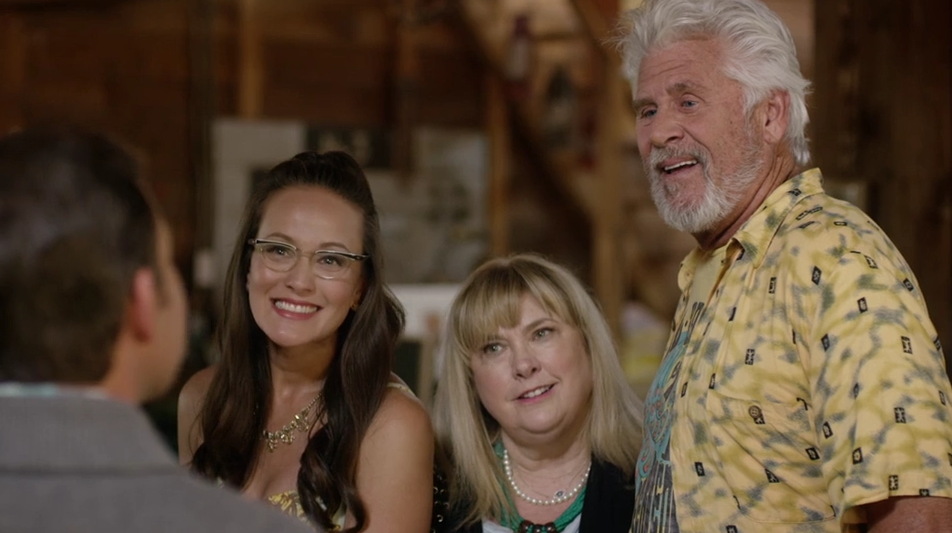
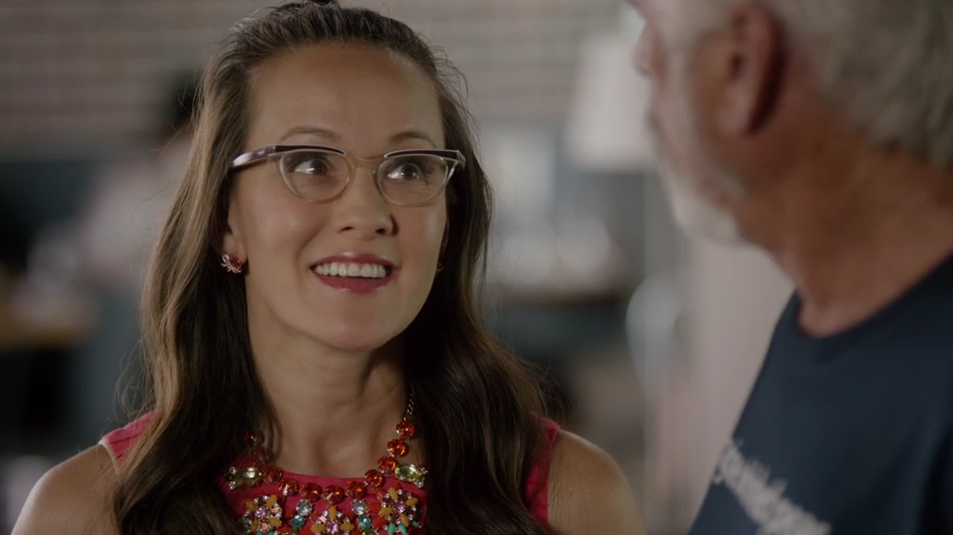
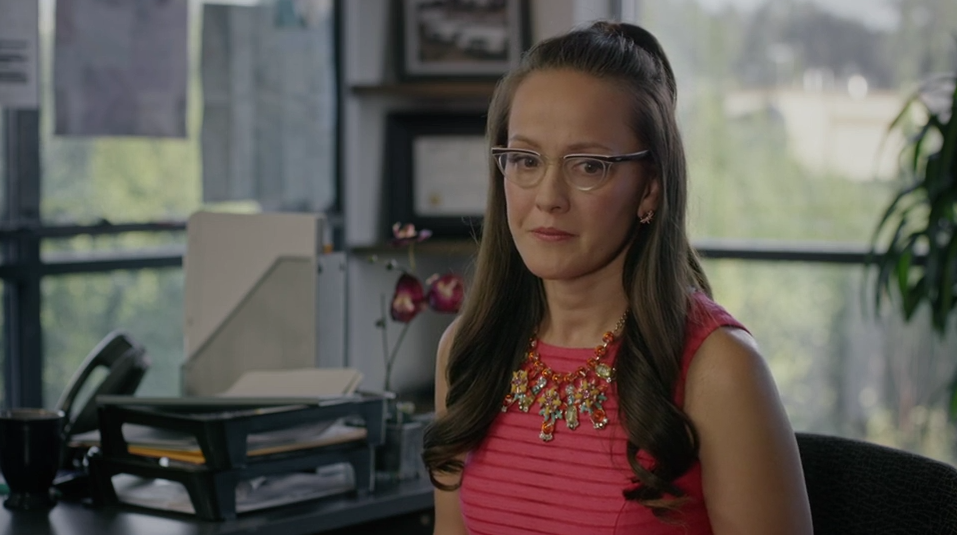
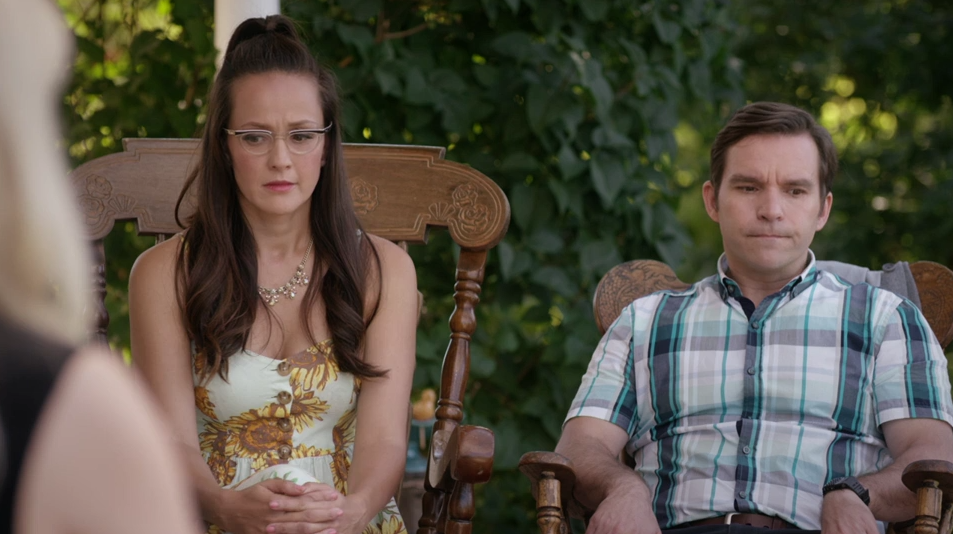
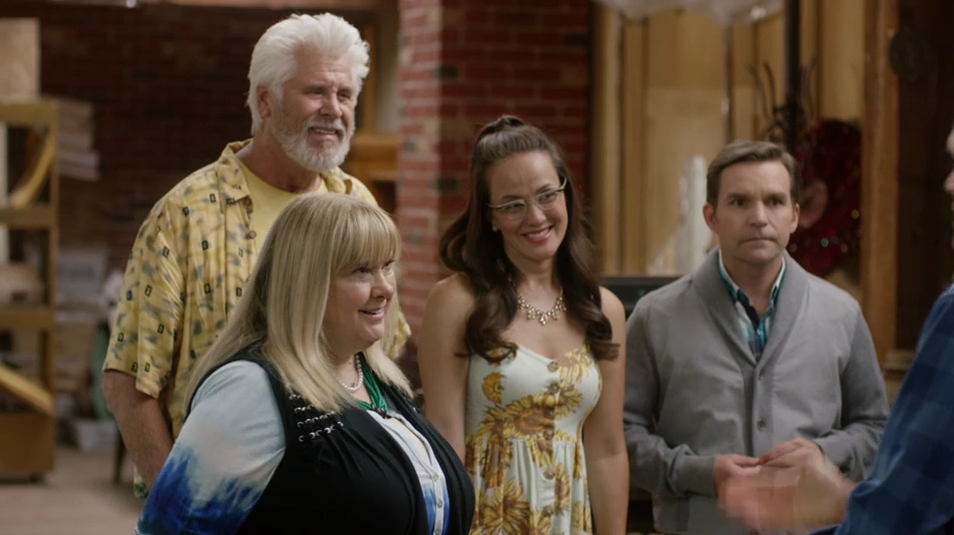
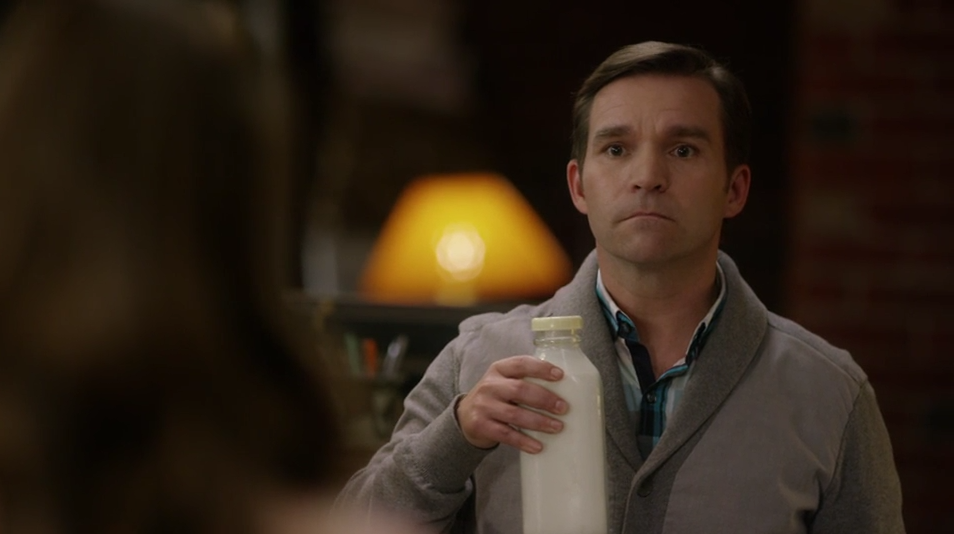
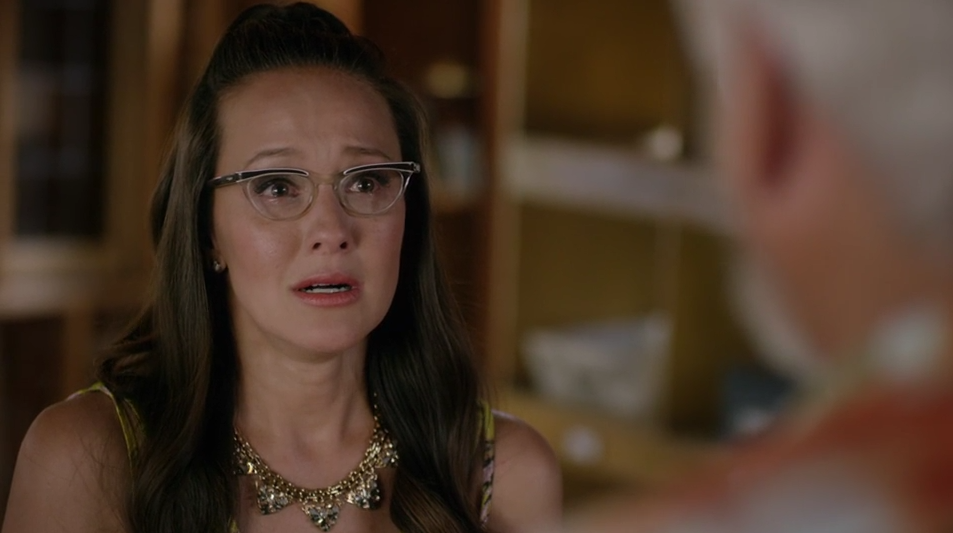
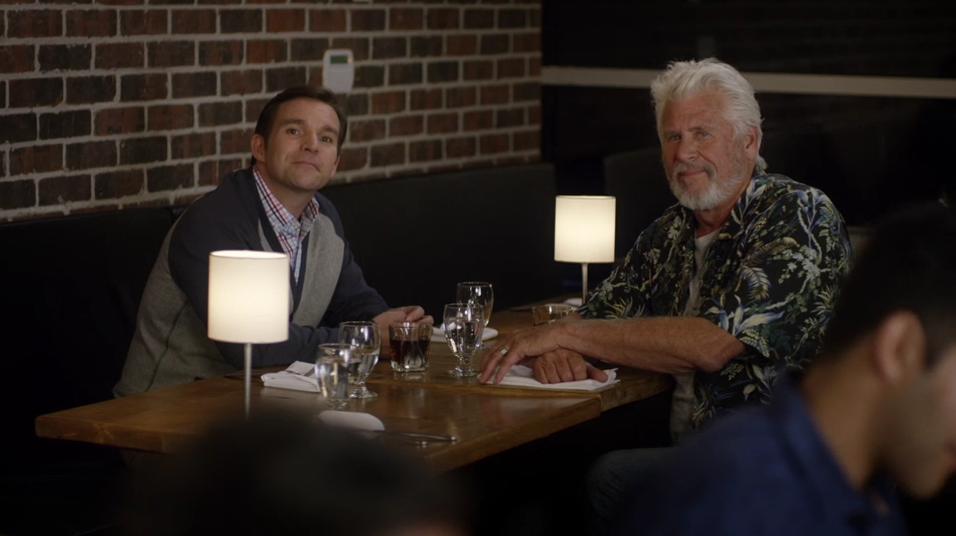
 RSS Feed
RSS Feed
